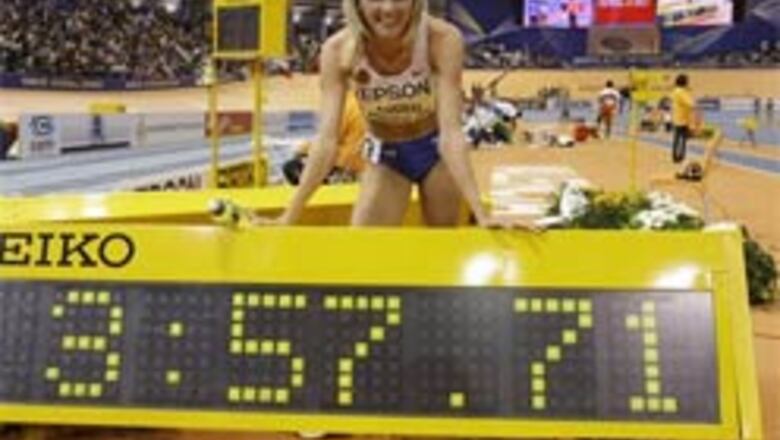
views
Moscow: Seven top Russian woman athletes have been temporarily suspended for the suspected switching of urine samples in drug tests last year, athletics's world governing body IAAF said on Thursday.
The controls showed discrepancies in their DNA samples, the IAAF said, which indicated the samples given were not from the athletes in question.
Yelena Soboleva, who has clocked the fastest times in the world this year over both 800m and 1500m, was targeted as well as fellow middle distance runners Svetlana Cherkasova, Yulia Fomenko, former double world champion Tatyana Tomashova and Olga Yevorova.
Hammer thrower Gulfiya Khanafeyeva, a former world record holder, and reigning European discus champion Darya Pishchalnikova, were also named in the affair.
Athletics' world governing body IAAF said on their website: "The IAAF has provisionally suspended seven athletes from Russia for doping offences, a decision which has been acknowledged by the All Russia Athletics Federation (ARAF)."
"The athletes have been charged (...) for a fraudulent substitution of urine which is both a prohibited method and also a form of tampering with the doping control process," IAAF said.
"These rule violations were established following the deliberate storage of samples by the IAAF and re-analysis using comparative DNA techniques, and were the result of a specific investigation which was instigated and carried out by the IAAF for more than a year."
"The IAAF will make no further comment until a final decision has been taken by the ARAF, which now takes over the responsibility to adjudicate these cases," the athletics body said
ARAF president Valentin Balakhnichev claimed five of the suspended athletes were among the medal favourites for the upcoming Olympic Games in China.
Only Cherkasova and Yegorova had not been picked to go to Beijing where the athletics events start on August 15.
"This IAAF decision dashes our athletes' hopes to perform at Beijing," Balakhnichev said.
Khanafeyeva also produced this season's fifth best result in hammer throwing, while Tomashova and Fomenko respectively pulled out the season's second and seventh fastest 1,500m times.
Under IAAF rules, athletes have up to 14 days to request a hearing from their national federation, in this case the ARAF.
If a hearing is requested, it must be held within a period of two months. It is not the first time that Yegoreva has been embroiled in controversy.
The IAAF ruled she could run in the 2001 Edmonton world championships because French authorities had failed to test her blood as well as her urine when she tested positive for EPO at a Golden League meeting in Paris.
She went on to win the title in Canada amid boos from the crowd while Britain's long-distance star Paula Radcliffe held up a placard in the stands saying 'EPO Drug Cheats Out'.




















Comments
0 comment